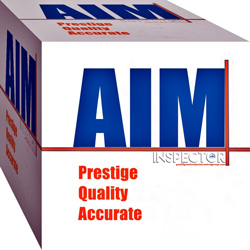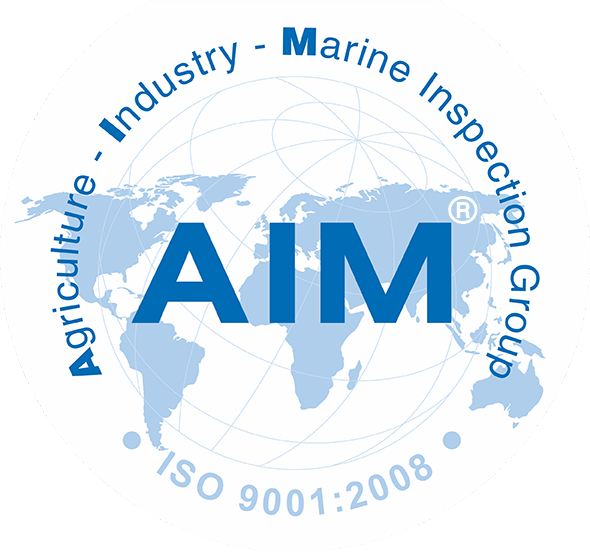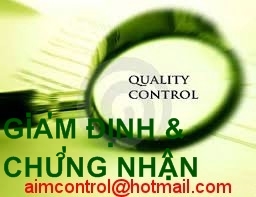Certification Service
Certification Service
AIM Control (AIM Group®) Certification services refer to the confirmation of certain characteristics of an object: Foods, goods, products, materials, commodity, cargo, projects, vessel, ship, equipment and other construction or organization meet with the standards, rules and other quality statistics after sampling, testing, analysis, measurement, verifications, surveys, inspections, external & internal review, assessment, or auditing & others identify to process of certifications
To issue a certificate (certification), AIM Control (AIM Group®) provides the inspections, inspection control services, surveys, audits and verifications, sampling, testing & analysis and consultant, others.
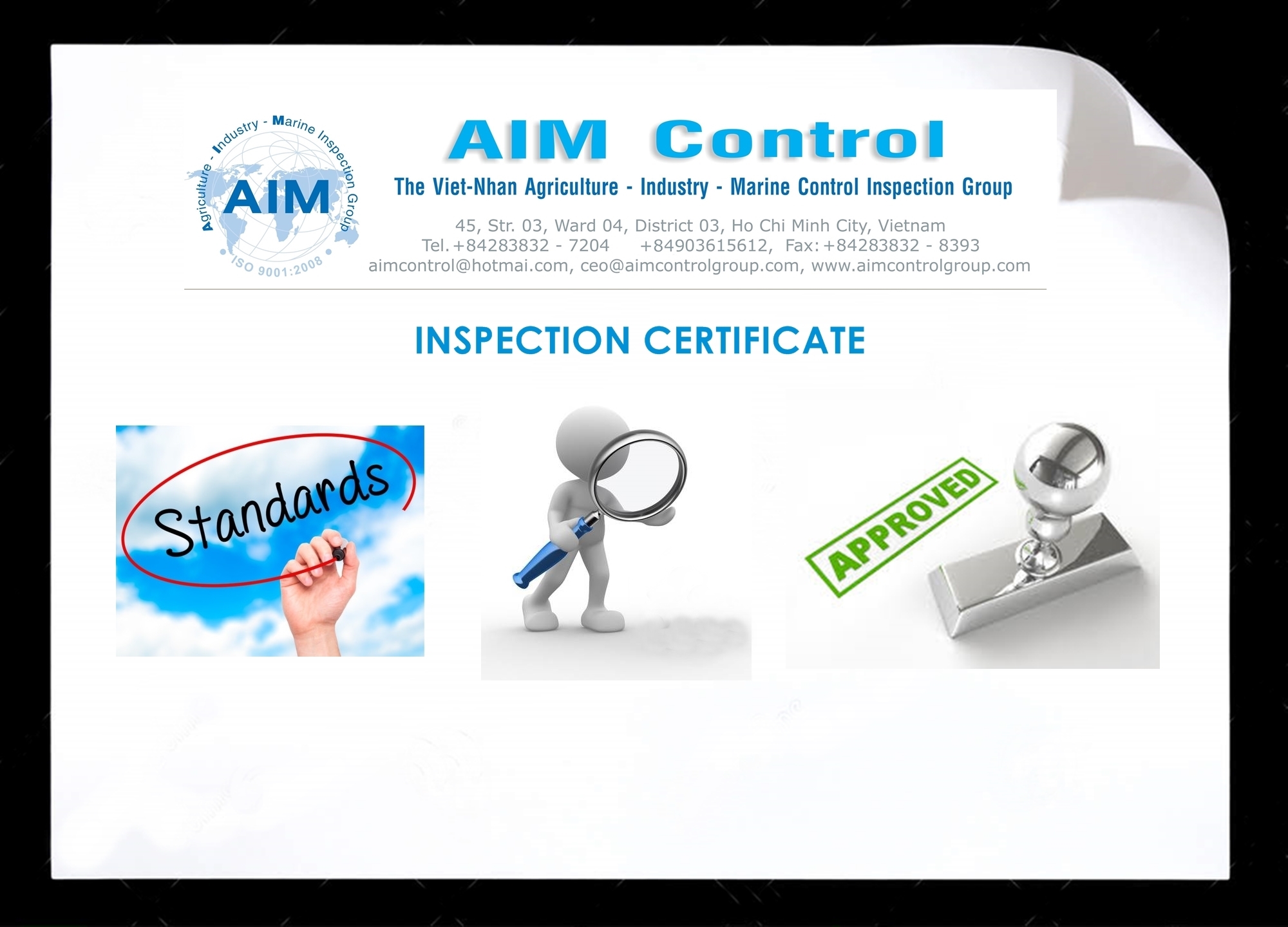
The certification object:AIM Control (AIM Group®) issues the certificates to the objects are Foods, goods, products, materials, commodity, cargo, projects, vessel, ship, equipment and other construction or organization (and others as client' requirement).
Purpose of certificates of inspection: AIM Control (AIM Group®) issues the certificates for clients to meet with the requirement (according to national & international standards, rules, others and client's requirement.
Period of survey certificate insurance: one (01) day after finding results of inspection, verification, identification, measurement and testing & analysis.
The core services offered by AIM Control (AIM Group®) Inspection Group include Inspection Services for the inspection and verification of the quantity, weight and quality of traded goods, Testing Services for product quality and performance against various health, safety and regulatory standards, Certification Services to ensure that products, systems or services meet the requirements of standards set by governments, standardization bodies or by AIM Control (AIM Group®) Inspection Group customers, and Verification Services to ensure that products and services comply with global standards and local regulations
Product certification issuance?
AIM Control (AIM Group®) Product certification issuance or product qualification issuance is the process of certifying that a certain product has passed performance tests and quality assurance tests, and meets qualification criteria stipulated in Contracts, Regulations, or Specifications (typically called "certification schemes" in the product certification industry).
Performance tests:
AIM Control (AIM Group®) performance a test is an assessment that requires an examinee to actually perform a task or activity, rather than simply answering questions referring to specific parts. The purpose is to ensure greater fidelity (is the quality of being faithful or loyal) to what is being tested.
Quality assurances:
AIM Control (AIM Group®) Quality assurance (QA) refers to the planned and systematic activities implemented in a quality system so that quality requirements for a product or service will be fulfilled. It is the systematic measurement, comparison with a standard, monitoring of processes and an associated feedback loop that confers error prevention. This can be contrasted with quality control, which is focused on process outputs.
Quality Controls act:
AIM Control (AIM Group®) Quality control, QC for short, we conduct a process by which entities review the quality of all factors involved in production. This approach places an emphasis on three aspects:
-
Elements such as controls, job management, defined and well managed processes, performance and integrity criteria, and identification of records
-
Competence, such as knowledge, skills, experience, and qualifications
-
Soft elements, such as personnel integrity, confidence, organizational culture, motivation, team spirit, and quality relationships
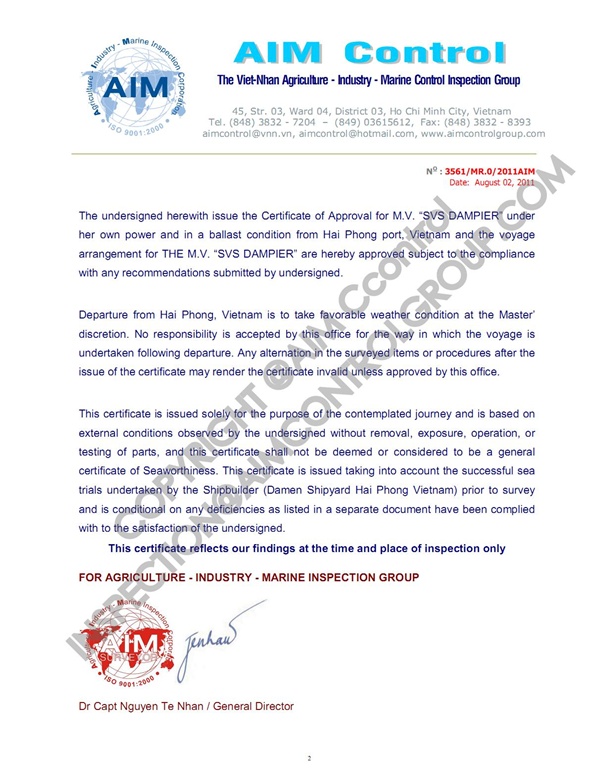
Contracts:
A contract is an agreement entered into voluntarily by two parties or more with the intention of creating a legal obligation, which may have elements in writing, though contracts can be made orally
Regulations:
Regulation is administrative legislation that constitutes or constrains rights and allocates responsibilities. It can be distinguished from primary legislation (by Parliament or elected legislative body) on the one hand and judge-made law on the other. Regulation can take many forms: legal restrictions promulgated by a government authority, self-regulation by an industry such as through a trade association, social regulation (e.g. norms), co-regulation, or market regulation. One can consider regulation as actions of conduct imposing sanctions, such as a fine, to the extent permitted by the law of the land.
Specifications:
A specification (often as spec) is an explicit set of requirements to be satisfied by a material, product, or service. Should a material, product or service fail to meet one or more of the applicable specifications, it may be referred to as being out of specification; Specs are a type of technical standard.
Requirements:
In engineering, a requirement is a singular documented physical and functional need that a particular product or service must be or perform. It is most commonly used in a formal sense in systems engineering, software engineering, or enterprise engineering. It is a statement that identifies a necessary attribute, capability, characteristic, or quality of a system for it to have value and utility to a user.
Technical standards:
A technical standard is an established norm or requirement about technical systems. It is usually a formal document that establishes uniform engineering or technical criteria, methods, processes and practices. In contrast, a custom, convention, company product, corporate standard, etc. which becomes generally accepted and dominant is often called a de facto standard. (A de facto standard is a custom, convention, product, or system that has achieved a dominant position by public acceptance or market forces (such as early entrance to the market). De facto is a Latin phrase meaning "concerning the fact" or "in practice".).
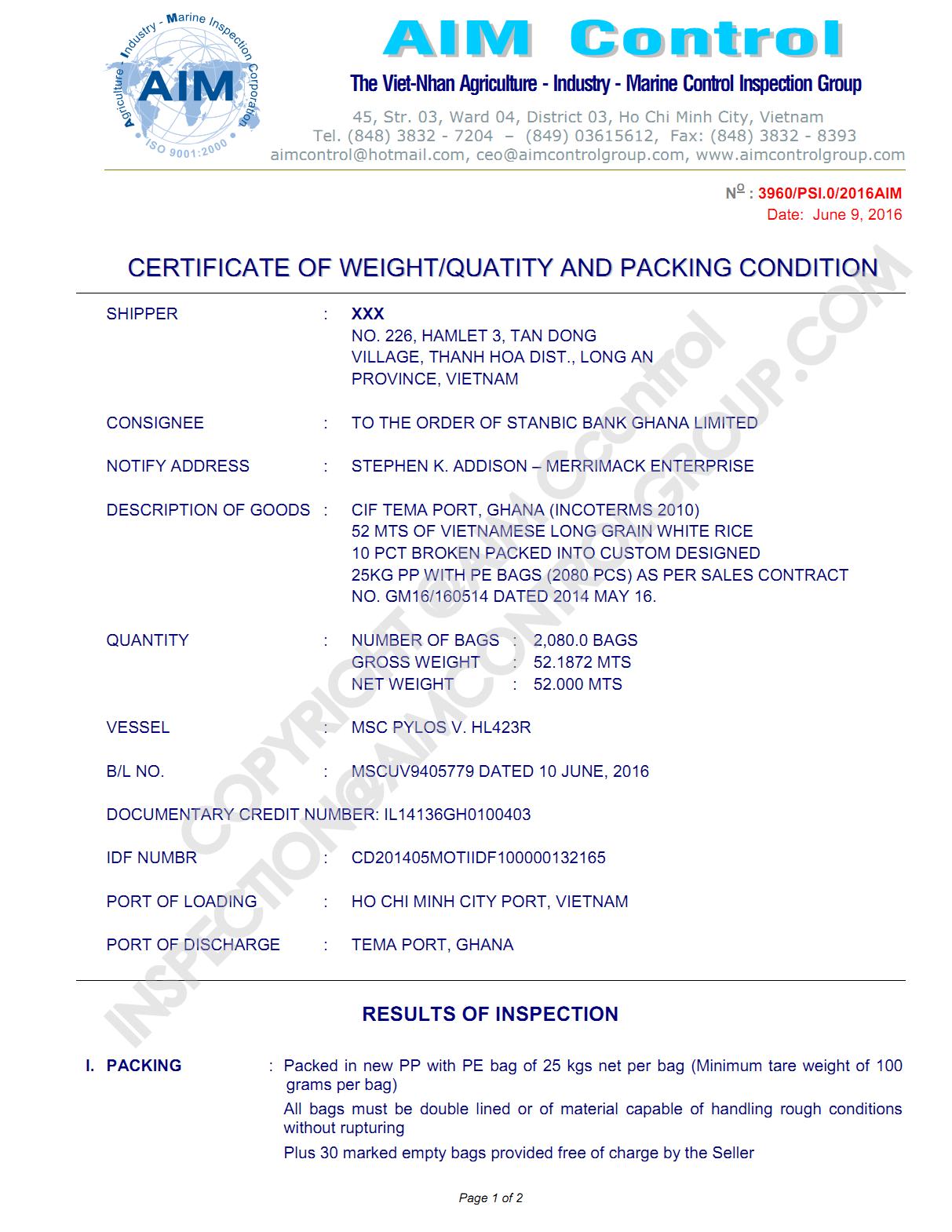
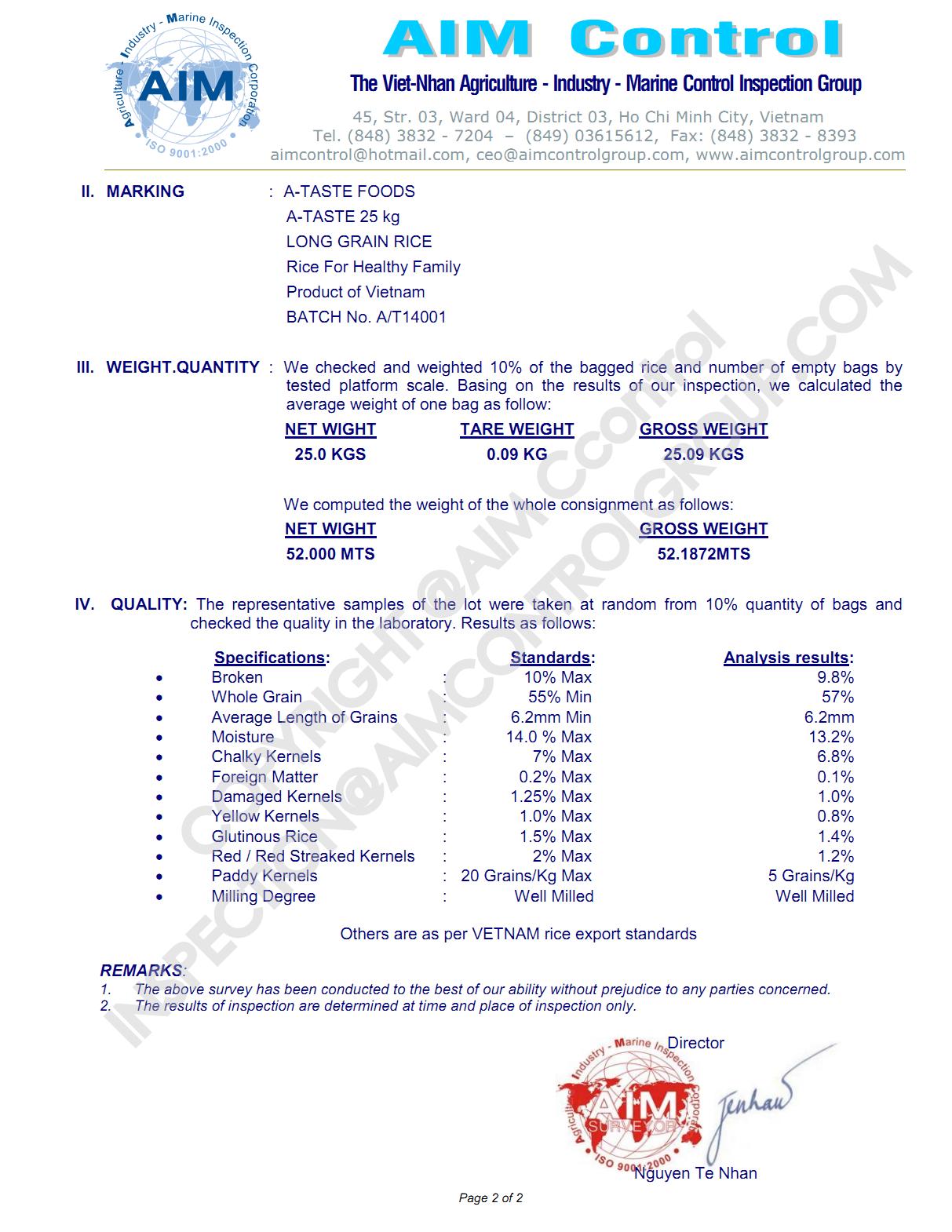
Certifications (and the certificates that document their existence) are often called "certs" in the everyday jargon of various industries.
-
Prequalification and certification of enterprises
-
Audits
-
Verifications
-
Sampling/ Testing / Analysis
-
Quality controls
-
Technical supervisions.
-
Quality and quantity inspections.
-
Materials testing. Non-destructive testing.
-
Supervision of production.
-
Evaluation services.
-
Inspection of civil and industrial objects.
-
Inspection of grain cargoes.
-
Inspection of consumer products.
-
Inspection services on containers cargo carriage market.
-
Marine surveys.
-
Assessment of enterprises.
